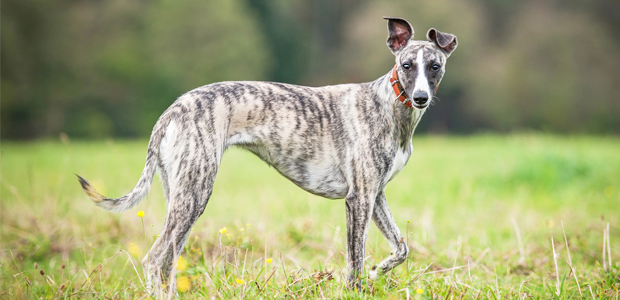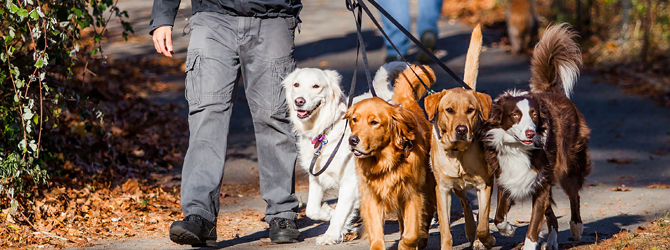How often should you walk your dog?
if you've ever seen your dog's ears prick up after the call of 'walkies!’ you'll know just how much dogs love going for a walk.
Walking provides your dog with vital exercise and helps to keep them happy, healthy and mentally stimulated. Getting out and about with your pooch is also a great opportunity to spend time together, build a bond and train your dog.
How much exercise does my dog need?
The amount of exercise that your dog needs — and how often you should walk your dog — will depend on lots of different factors including their breed, age, health and personality.
If you are thinking about getting a dog, it’s a good idea to have a look at their exercise needs to see if they align with your lifestyle.
If you have plenty of free time, enjoy an active lifestyle and are prepared to dedicate a few hours of your day to long walks, or are prepared to use a dog walker, then you have a lot of options when it comes to choosing a breed.
Working dogs and dogs with a sporting nature will require lots of daily exercises, up to 2 hours a day.
Breeds that typically require around 2 hours of walking include:
If you have a busy lifestyle and are out of the house for most of the day, it might be best to choose a breed that requires a less intense exercise routine.
Examples of breeds that typically require 30 minutes - 45 minutes of exercise:
If you have a bit more spare time but you’re looking for a dog that doesn’t need to walk for miles and miles, there are lots of dog breeds that sit in the middle of the activity spectrum.
Examples of breeds that typically require around 1 hour of exercise a day:
- West Highland terrier
- Cocker spaniel
- Whippet
- Border terrier
- Staffordshire Bull Terrier
- Pug
- Dobermann
If you are unsure about your dog’s exercise needs or would like to discuss which dog would be best suited to you, speak to your vet.

Read more: Why do dogs roll in fox poo?
Do I need to walk my dog every day?
Walking your dog is extremely beneficial for their wellbeing, both physically and mentally. If your dog isn’t getting walked frequently enough, it can lead to health problems such as obesity and weight problems as well as behavioural issues that arise with being bored, such as excessive barking and chewing.
Generally speaking, it’s a good idea to take your dog for at least one walk a day, although your dog’s exercise needs will change throughout its life.
When your dog is a puppy, you will have to gradually introduce them to longer walks. It’s the same story for senior dogs, who can experience joint and mobility issues as they get older and may not be able to cover as much ground as they used to.
Can I walk my dog off the lead?
Walking your dog off the lead depends on the circumstances and the behaviour of your dog. If your dog isn’t well socialised and has issues with recall, then it’s best to keep them on the lead if they’re in a busy area or around other dogs.
Generally speaking, it’s fine to let your dog off the lead in public wooded areas, fields and footpaths. Plan your route and keep a lookout for livestock such as sheep, cows and horses. It’s essential that you keep your dog on a lead around livestock, as even very well trained dogs can act unpredictably around them.
If you are in a park, especially one that has a children’s play area, there might be signs to notify you that all dogs should be kept on the lead.
It’s illegal for dogs to be ‘dangerously out of control’ under the Dangerous Dogs Act 1991. This means that if your dog injures someone or behaves in a way that causes someone to fear being injured, you could be prosecuted.
Your puppy will go through a socialisation period until he is about 12 weeks old. During this time, he will be open to new experiences, and the things that happen to him in this time are less likely to become an issue in later life.
If your dog is a rescue or suffers from anxiety and becomes nervous, scared or aggressive around other dogs and people, you can seek help from a qualified positive reinforcement behaviourist.
By encouraging your dog to meet lots of other dogs and people, your dog can develop socialization skills and is more likely to grow up to become a well behaved, happy dog that is less likely to react badly to coming across other dogs when you are out on a walk.
Read More: Socialising your puppy
Want to know more about walking your dog?
For details and advice about walking your dog, contact your local vet.
Find your nearest vet using our Find a Vet page, or speak to a vet online using our video vets service.

